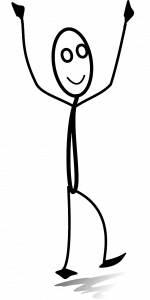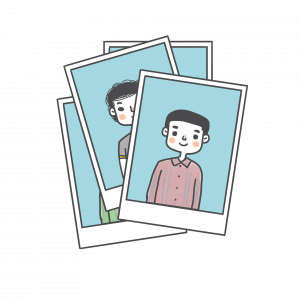So far in this ‘I want to write a book but’ series I’ve talked about finding time to write. Today is all about that most elusive of things: the idea. Want to write a book but can’t think of an idea? Help is at hand! But first, let’s talk about what ideas are and what they’re not. Ideas come in many shapes and sizes, but there are basically three types:
And of course, those internal ideas are always the result of various external stimuli – although you won’t necessarily know where the idea came from.
For an idea to emerge, you need to meet with the stimuli – whether it’s in your head or out there in the world. You + stimuli = idea. This is important. If someone else encountered this stimuli, they would come up with a different idea. Also, an idea doesn’t suddenly appear out of thin air while you sit and wait for it without any stimuli. (If this happened, you would have encountered the stimuli at some point.)


I’ve been asked this many times at writing events and in workshops when there often isn’t time to give a full answer. Ideas are, of course, personal so when you take in someone else’s fully-formed work of art, whether it’s a painting, a play or a book, the initial idea can seem shrouded in mystery. So let’s look at it the other way round, from the beginning of a project instead. Rich sources of ideas include:
When you do deliberately put yourself in the way of stimuli such as those above to generate ideas, the senses become very important. You don’t simply see the photograph, you imagine walking right into it. Ask yourself: What can you smell? What can you hear? You don’t simply wander around a museum, you imagine the person who once owned these objects as if you could stand in their shoes.
When you think about it anything and everything has a story attached: a discarded cigarette butt has a story – where was the tobacco grown? who smoked it? why did they throw the cigarette away? – the kitchen timer in front of me was made in a factory and the people who work there have a story, my pencil came from a tree that grew in a particular place and was chopped down at a particular time, the bush outside my window was planted by the previous owners of this house who had their own stories and memories.
Try it now: pick three random objects and think about their providence.
Even mundane objects have a story to tell. That might not be the story you want to tell, but imagine you asked those exact same questions about the providence of someone or something much more intriguing.
You can deliberately put yourself in the way of ideas. Instead of sitting at your desk trying to ‘think up’ an idea, go for a walk, go to an interesting building, investigate a topic you find intriguing, find reasons to interview to interesting people. Remember I said you + stimuli = idea? Often you have to go out and find the stimuli. Don’t try to force it. Let your subconscious mull things over.
Now here’s the idea we started with – having talked about what ideas are and how to come into contact with them – let’s talk about why you don’t actually need an idea to start. Here’s the thing: writing, like talking, can be a way of thinking out loud. So the writing process itself can generate ideas. Go to an old building, sit outside and spend a couple of hours writing about it. If you keep going, by the end of those two hours, your brain will have stopped describing and begun creating stories, characters, places and, yes, ideas.
The other big reason why you don’t need an idea in order to start writing is because habit is much more important. Turn up regularly and write. If you can’t think what to write about, make lists of interesting words, get a book of writing prompts, write down what you’re thinking, or find a set of old photographs or postcards to use as starting points. As soon as you’ve established the habit, your brain will be used to going into writing mode. Slowly you’ll give yourself permission to write about the people, places and topics that you find intriguing or fascinating, knowing that you don’t have to show anyone until you are ready.
More soon. Until then, happy writing,
Lou xx
P.S. Curious about working with me? Find out more here.
P.P.S. The next post in this series is here: I want to write a book but I don’t know how to start.